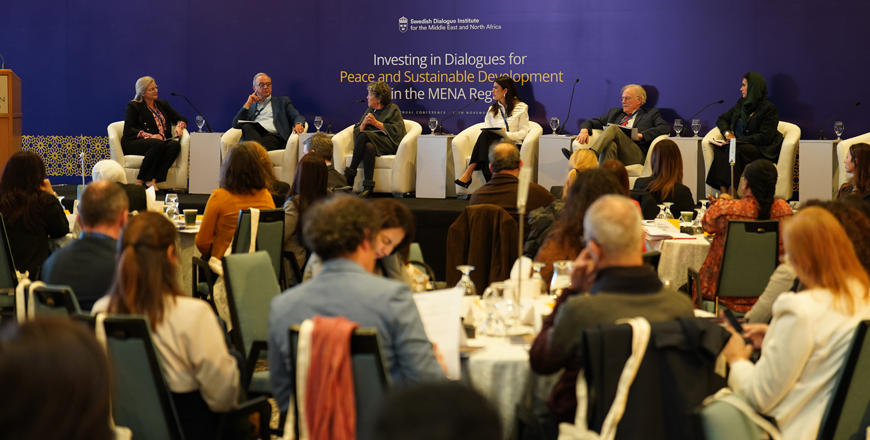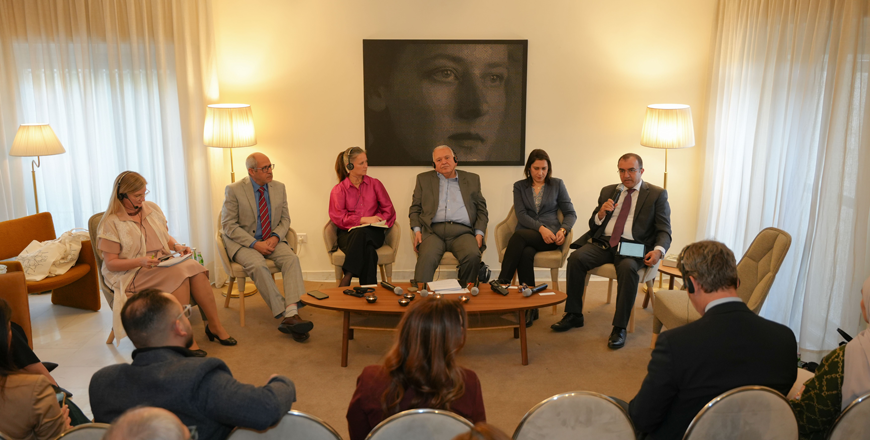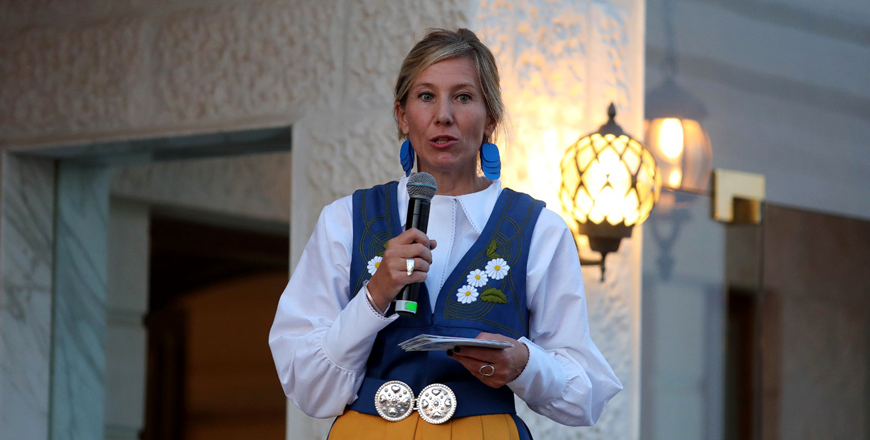You are here
Swedish Dialogue Institute for MENA concludes its third annual conference
By Ilham Darwazeh - Nov 27,2024 - Last updated at Nov 27,2024

The conference brings together over 100 participants from the Middle East, North Africa, and Europe to foster cross-sectoral collaboration and exchange. (Photo courtesy of Swedish Dialogue Institute)
AMMAN — The Swedish Dialogue Institute for the Middle East and North Africa on Wednesday concluded its third annual conference entitled "Investing in Dialogues for Peace and Sustainable Development in the MENA Region".
The conference brought together over 100 participants from the Middle East, North Africa, and Europe including Sweden to foster cross-sectoral collaboration and exchange, with a variety of experts in women and youth peace and security, entrepreneurs, climate activists, and practitioners of intercultural and interreligious dialogue.
During the event, participants took part in speeches, panel discussions, and interactive sessions into key themes such as peace and security, intercultural dialogue and the green transition.
"Dialogue is the oxygen of civilisation. Without it, we suffocate in our own narrowness," Director of the Swedish Dialogue Institute Ann Mawe quoted Egyptian writer and Nobel Laureate Naguib Mahfouz during her opening remarks.
She emphasised the urgent need for inclusive and genuine dialogue to address conflicts and foster understanding across differing perspectives.
On peace and security, it was acknowledged that women and children are among the "most severely affected" by ongoing conflicts and humanitarians crisis, yet they remain conspicuously excluded from formal conflict resolution and peace building efforts.
This statement set the stage for discussions focusing on the critical agendas of youth, peace and security and women, peace and security, emphasising the need to integrate women and youth into peace processes, creating inclusive pathways to peace and security at all levels.
In the interactive sessions, participants addressed how terminologies and policies which are brought from other cultures can limit the advocacy work and causes in general, as well as the importance of using the feminist terminologies.
With participants representing both the MENA region and Europe, the conference highlighted the importance of cross-regional cooperation and open intercultural dialogue.
These interactions foster a deeper understanding of each region's perspectives, enabling participants to build on mutual learning, strengths, share experiences, and address common concerns.
Such dialogue not only promotes empathy and trust but also serves as a critical tool for bridging divides and overcoming trust gaps often rooted in misunderstanding and misinformation.
The discussions also emphasised the pressing need to discuss climate change with a sense of importance, recognising its far-reaching implications for the stability and well-being of communities in the MENA region and beyond.
The green transition to renewable energy and the adoption of sustainable solutions were identified as key pathways for fostering regional development. Such partnerships could accelerate the shift to sustainable energy systems while fostering innovation ecosystems.
Related Articles
AMMAN — The Swedish Dialogue Institute for the Middle East and North Africa (SDI) on Thursday hosted a "Ramadan Iftar and Panel Discussion"
AMMAN — Sweden’s Ambassador to Jordan Alexandra Rydmark has highlighted the significant impact of recent visits by the Swedish Royal Family
AMMAN — Minister of Youth Mohammad Al Nabulsi on Sunday held separate meetings with Sweden's Ambassador to Jordan Alexandra Rydmark, and Aze


















